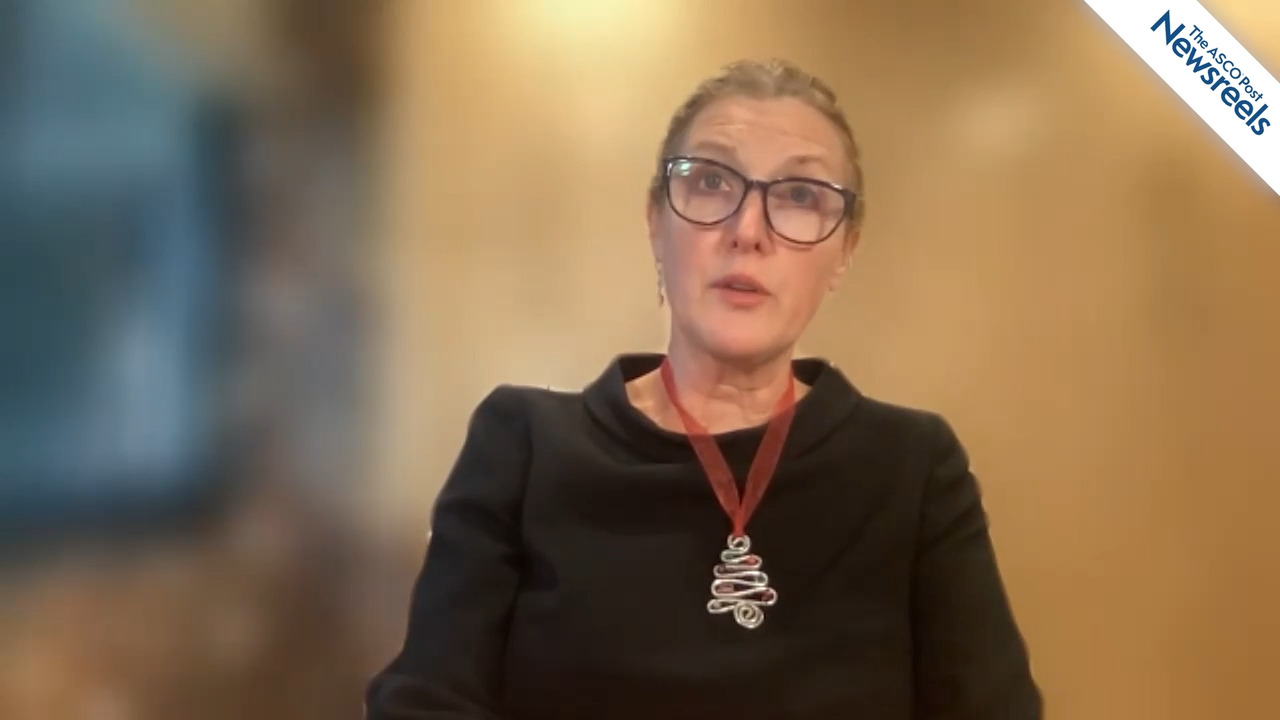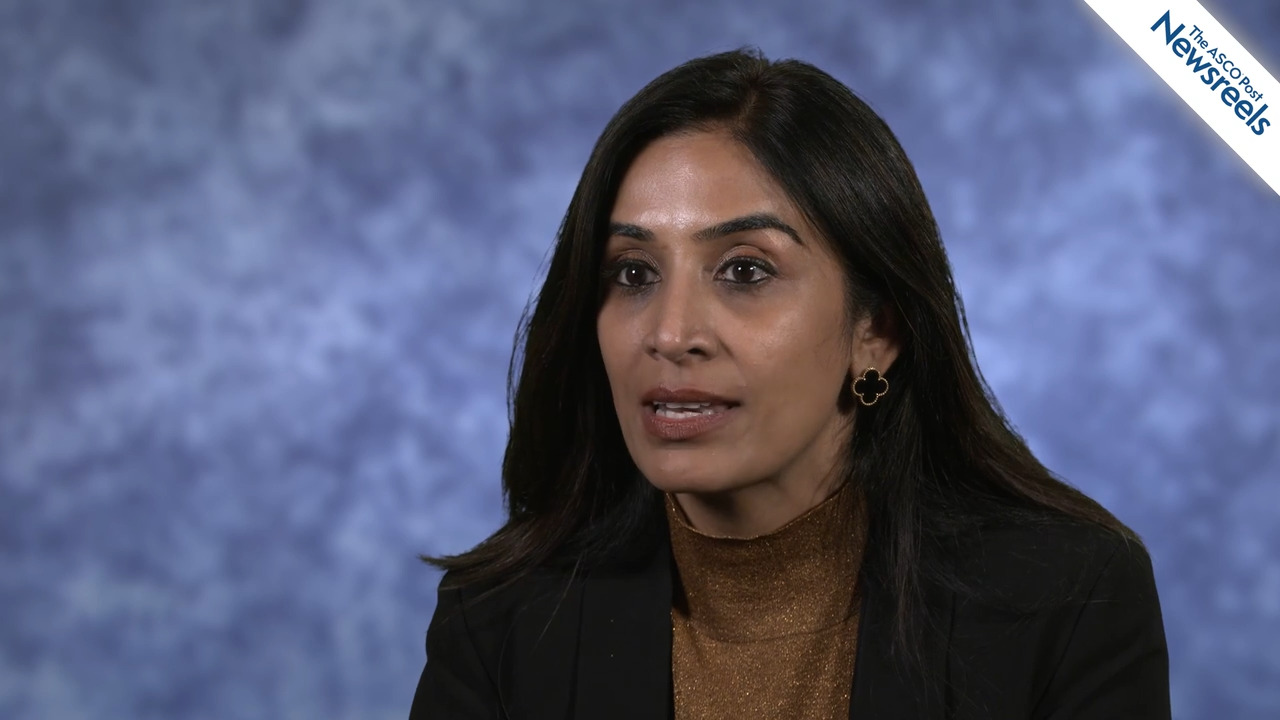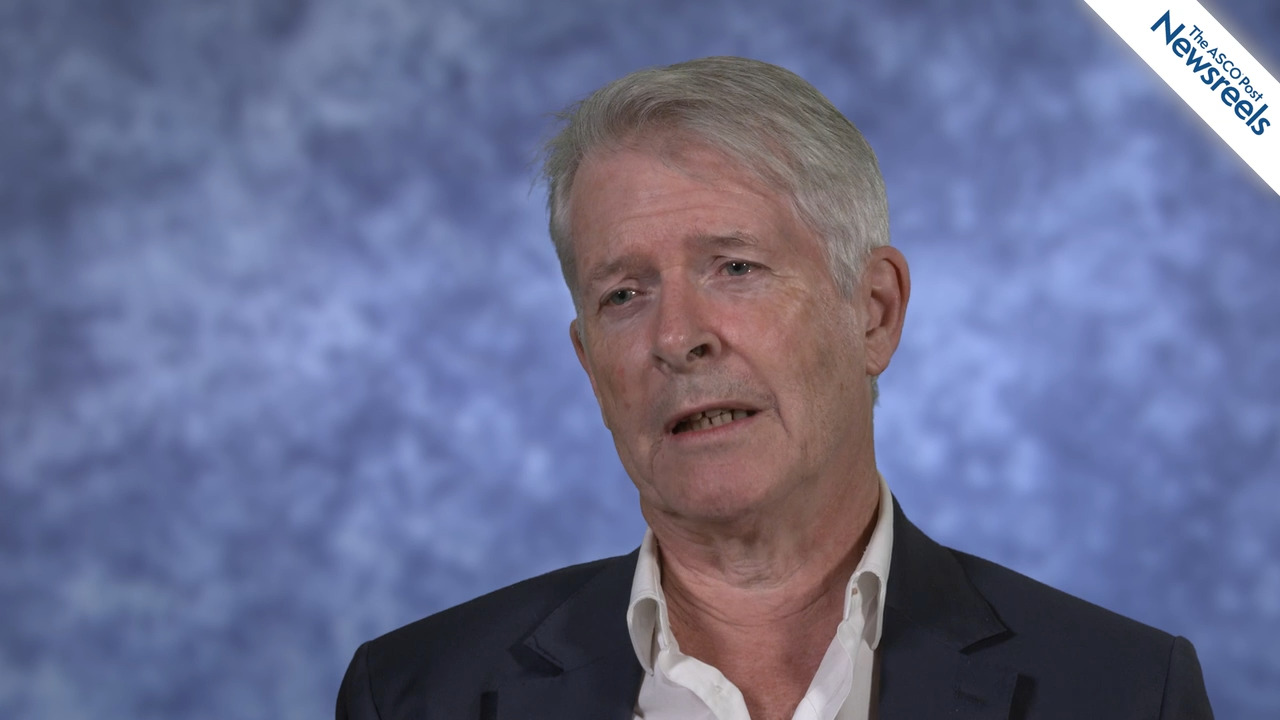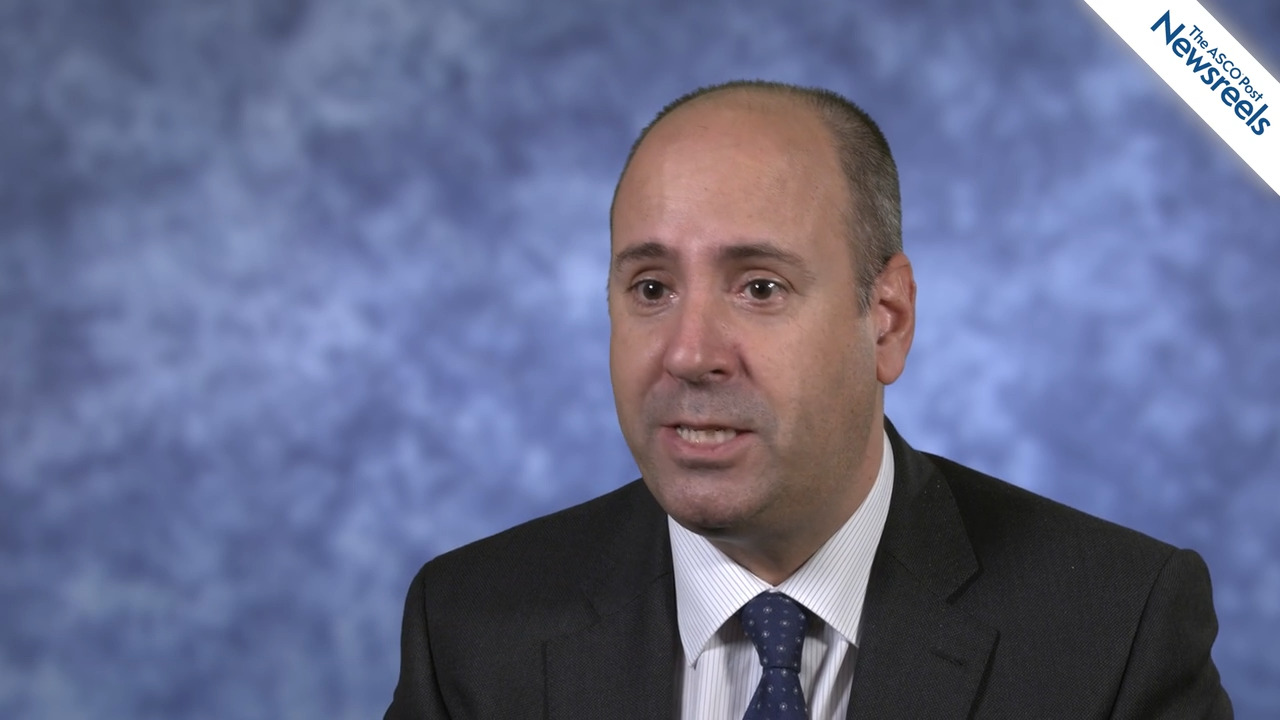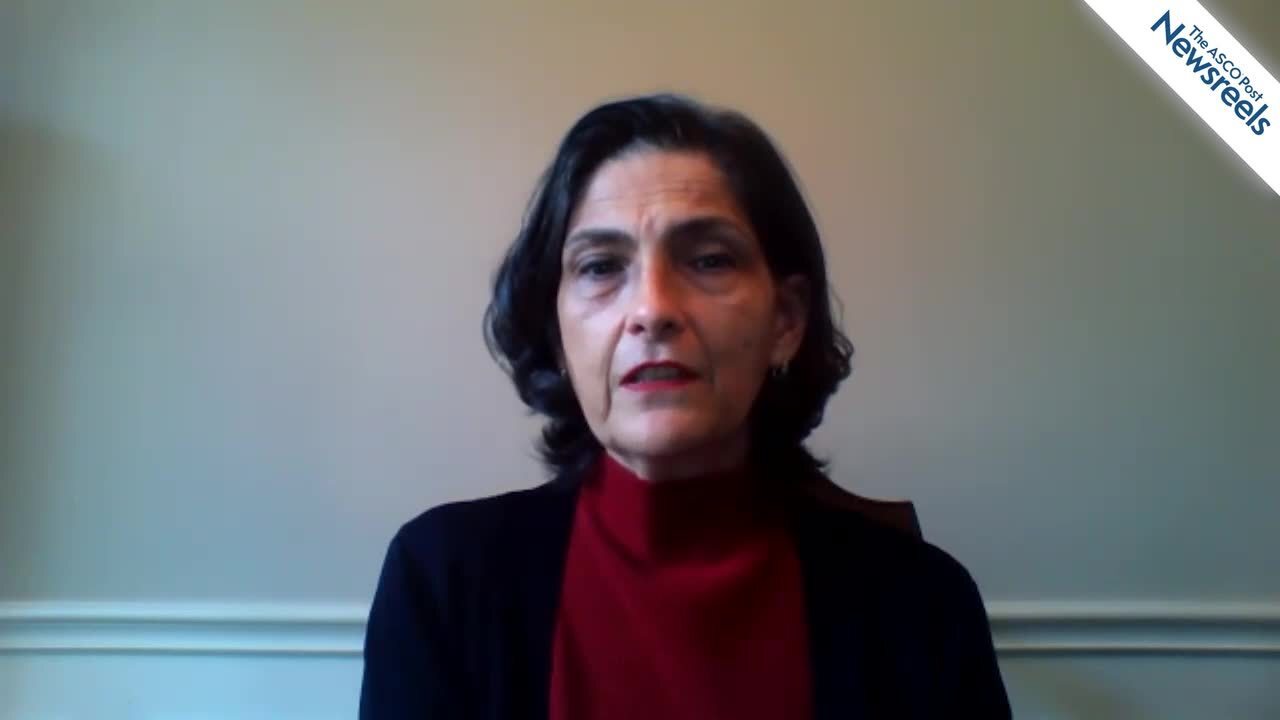Patricia A. Ganz, MD, on Early Breast Cancer, Olaparib, Chemotherapy, and Quality of Life
2021 San Antonio Breast Cancer Symposium
Patricia A. Ganz, MD, of the University of California, Los Angeles, discusses quality-of-life results from the phase III OlympiA study of adjuvant olaparib after (neo)adjuvant chemotherapy in patients with germline BRCA1/2 mutations and high-risk HER2-negative early breast cancer (Abstract GS4-09).
The ASCO Post Staff
Lisa A. Carey, MD, of the University of North Carolina at Chapel Hill and the Lineberger Comprehensive Cancer Center, discusses findings from a pooled analysis of the MONALEESA-2, -3, and -7 trials. Among the findings was a consistent overall survival benefit with ribociclib plus endocrine therapy for patients with luminal A, luminal B, and HER2E breast cancer subtypes. Patients with the basal-like subtype did not derive a benefit from ribociclib, but the sample size was small (Abstract GS1-04).
The ASCO Post Staff
Komal Jhaveri, MD, of Memorial Sloan Kettering Cancer Center, discusses the latest updates from the SUMMIT trial, which explored the combinations of neratinib/fulvestrant/trastuzumab and neratinib plus trastuzumab, as well as fulvestrant alone. The combination regimens appeared to benefit patients with hormone–receptor positive, HER2-mutated metastatic breast cancer who have had prior exposure to CDK4/6 inhibitors, and those with HER2-mutated triple-negative disease (Abstract GS4-10).
The ASCO Post Staff
Charles Coombes, MD, PhD, of Imperial College, London, discusses study results on samuraciclib, a first-in-class, oral, selective inhibitor of CDK7, in combination with fulvestrant in patients with advanced hormone receptor–positive HER2-negative breast cancer. The combination of agents has demonstrated evidence of anti-tumor activity for patients who have progressed on their prior CDK4/6 inhibitor treatment (Abstract GS3-10).
The ASCO Post Staff
Javier Cortés, MD, PhD, of the International Breast Cancer Center, discusses the final phase III results of KEYNOTE-355, which showed that pembrolizumab and chemotherapy improved overall and progression-free survival, compared with placebo and chemotherapy, for patients with previously untreated, locally recurrent, inoperable or metastatic triple-negative breast cancer (Abstract GS1-02 ).
The ASCO Post Staff
Banu Arun, MD, of The University of Texas MD Anderson Cancer Center, discusses a session she moderated that included discussion of how exercise and diet may reduce the risk of breast cancer, and emerging non-endocrine treatments that may help prevent the disease.
